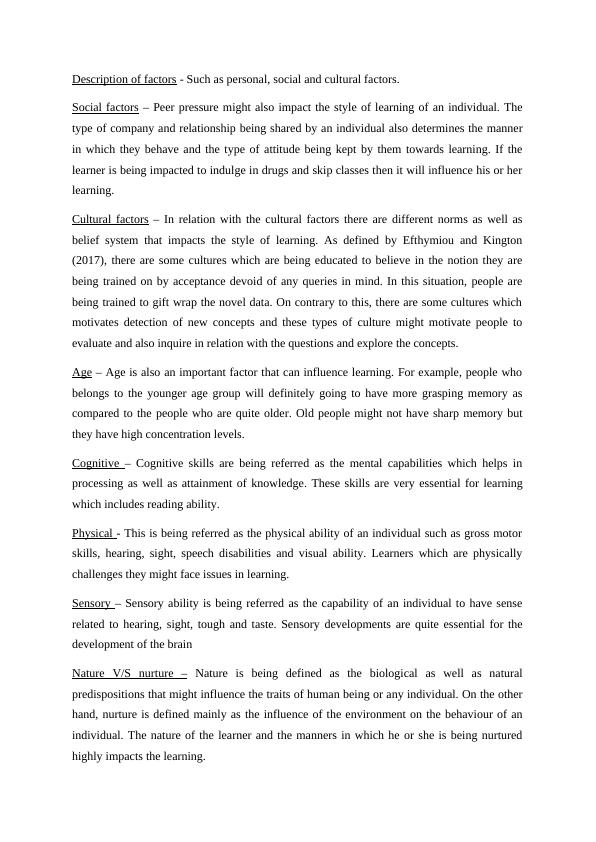Factors Affecting Inclusive Practice in Education and Training
Added on 2023-06-14
3 Pages1111 Words401 Views
End of preview
Want to access all the pages? Upload your documents or become a member.
Creating an Inclusive Playing Field
|6
|1336
|297
Impact of Personal, Social, and Cultural Factors on Learning
|2
|1016
|95
Creating an Inclusive Learning Environment: Impact of Personal, Social and Cultural Factors on Learning and Strategies for Effective Liaison between Professionals Involved in Inclusive Practice
|10
|3062
|270
Impact of Factors on Learning
|10
|3258
|71
Impact of Personal, Social, and Cultural Factors on Learning and Inclusive Practice Policies and Frameworks
|1
|702
|337
Inclusive Practice in Education and Training: Factors Influencing Learning and Impact of Policy and Regulatory Frameworks
|6
|1219
|482

